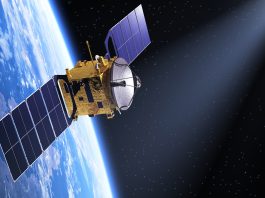Science Minister George Freeman has launched a new plan for space sustainability, a raft of measures which will demonstrate the UK’s commitment, ambition, and drive to improve the UK’s space sustainability.
These plans to reduce the UK’s space sustainability were announced today – 23 June 2022 – in a speech to the 4th Summit for space sustainability in London, as part of a package which aims to make the UK a world leader in driving sustainability in space, as well as on Earth. The Minister announced that the UK government will work with industry to establish a new space sustainability standard. This intends to encourage companies to adopt the greatest practices in space sustainability and to officially recognise those who make the efforts to do so.
Improving the UK’s sustainable use of space: Key to unlocking sustainable private investment
This novel standard will contribute towards making the UK a more desirable place to operate and invest, as well as helping unlock sustainable private investment. Therefore, this will significantly help in further driving the growth of the space sector. Also, the standard will be developed and tested by industry and academia, in partnership with the UK government and the Civil Aviation Authority, which is the UK spaceflight regulator.
Freeman also established that the UK will take on a regulatory review to incentivise sustainable practices, investment, and growth. This will allow today’s latest innovations in technologies, such as active debris removal (ADR), in-orbit servicing and manufacturing (IOSM) and sustainable development, to become tomorrow’s standards in space operation. Thus, this will ensure that the UK’s regulatory regime will evolve in line with advances in technology and lead the way in protecting the space operating environment.
Additionally, this is expected to include work alongside industry, academia, and insurers to explore ways of lowering insurance premiums for sustainable missions, further contributing to driving greater space sustainability in the UK.
Harnessing responsible finance for sustainable space
“The huge increase in commercial satellite launches will see tens of 1thousands of small satellites launched in the next ten years,” explained Minister George Freeman. “A ‘Wild West’ space race without effective regulation risks a growing crisis of debris in space, adding to the existing threat from 400 redundant satellites and a million pieces of debris.
“To harness space for sustainability, we need an agreed framework of standards for measuring and managing debris, improving satellite repair, and retrieval and kite-marking genuinely sustainable supply chains.
“As it was with shipping in the 17th century and cars in the 20th, the key will be regulation which enforces good industry standards and reduces the cost of insurance and finance for a satellite launch, which can show it is compliant. With London as a global capital of insurance and venture financing, we have an opportunity to use our historic role in space science to now harness responsible finance for sustainable space.
“That is why today I am announcing our Plan for Space Sustainability, a package of announcements which demonstrates the UK’s commitment to using our regulatory leadership. This plan will ensure a safe and sustainable commercial space sector which rewards responsible satellite programs by lowering the costs of launch licenses and insurance for sustainable satellites and space missions.”
Additionally, when outlining the UK’s global ambitions, the Minister announced further government investment to support phase three of the implementation of the UN Office for Outer Space Activities (UNOOSA) Guidelines for the long-term sustainability of outer space. To accomplish a safe and sustainable space environment, the UK is performing a leading role alongside UNOOSA in the adoption of these guidelines, which set out how countries and companies can help preserve the outer space environment for future generations. Therefore, phase three of the project will contribute towards building on the successful work of earlier phases in building awareness of the guidelines among UN member states and identifying barriers to their adoption.
The growing volume of debris in space is environmentally and commercially unsustainable
The UK government firmly believes that immediate action is required to clean up the Earth’s orbit as well as to guarantee future projects minimise their footprint through recyclable manufacturing, retrieving satellites, and mitigating any debris.
Active Debris Removal (ADR) is a key tool in cleaning up space junk in the Earth’s orbit, and the Minister confirmed that the government’s existing ADR programme will receive £5m funding for its latest phase. The programme will now move at pace to select two syndicate projects for grant awards this summer. It was also proclaimed that the National Space Surveillance and Tracking Programme, which recently received an additional £5m funding, and will include a new ‘monitor your satellites’ collision assessment service. This has now opened for registration for all UK licensed satellite operators following successful trials with a number of companies.
These announcements, led by industry and government in partnership with UK Space Agency, demonstrate the UK’s intention to lead a global regulatory framework that both expects and requires the greatest standards, reducing the cost of licensing for supply chains which meet these requirements.
“Space sustainability is a complex challenge requiring a variety of solutions, but it also presents a significant opportunity for the UK to demonstrate global leadership. We are developing new missions and capabilities to improve how we track objects in orbit and accelerate technologies such as active debris removal while setting new standards and working closely with international partners to keep space open for future generations,” concluded Dr Paul Bae, Chief Executive of the UK Space Agency.
The UK space sector employs approximately 47,000 people directly in the UK and supports up to 190,000 jobs in the supply chain, contributing almost £7bn to the UK economy each year. By building on the commitments of the national space strategy and ensuring the space industry can continue to operate safely and sustainably well into the future, to help to protect and grow these high-quality jobs across the country for future generations.





